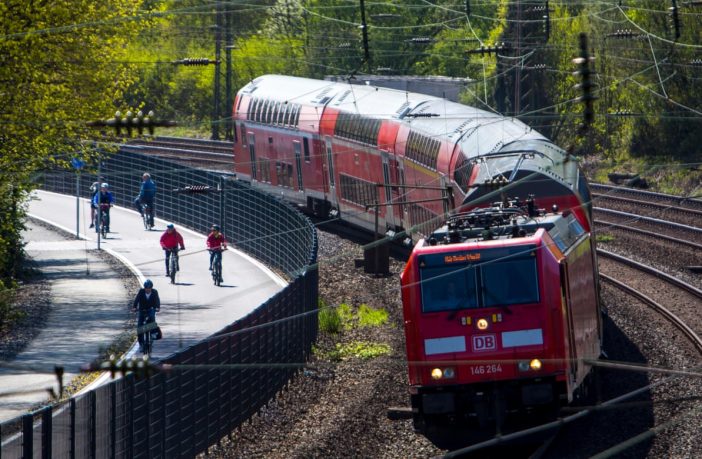- Germany is building a car-free bicycle highway that will stretch a total of 62 miles.
- The bicycle highway network will connect 10 German cities plus four universities when complete.
- The initiative is expected to reduce carbon emissions by 16,000 tonnes plus take 50000 cars completely off the road according to the Regional Association Ruhr.
- Let’s not forget the exercise and mental health factors.
In 2010, when the motorway between the German cities of Duisburg and Dortmund was closed as part of a cultural project, three million people walked, skated or cycled along the road. For one day only it had been transformed into a gigantic city boulevard. This was the birth of the idea of the bicycle highway in Germany.
The bicycle highway looks like a traditional road, with passing lanes, overpasses, underpasses for crossroads, and even streetlights. The obvious benefit is that it will be safer because trucks, buses and cars are simply not allowed.
The first three-mile stretch of the road opened in 2015, connecting Mülheim an der Ruhr and Essen.
When it comes building serious bicycle highways, the Danes and the Dutch were the great pioneers. While the Danish supercykelstiers are concentrated in and around Copenhagen, the Netherlands and Belgium boasts a network of fietssnelwegen throughout the country.
With electric bicycles growing in popularity, inter-city commutes can be made in good time on the new bicycle highways. The initiative is also expected to boost tourism affording travellers time to take in the experience plus visit hotspots without the hassle of traffic.
Author: Bryan Groenendaal











